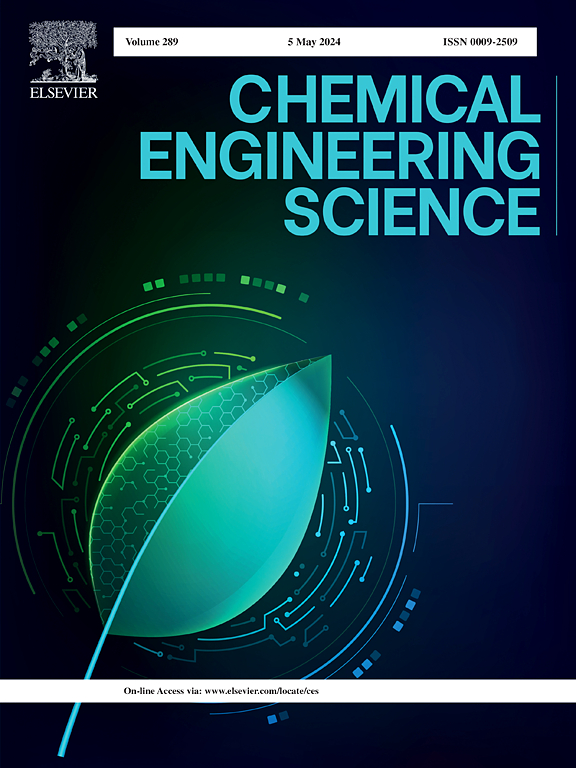醇(C2+)脱水高效合成烯烃催化剂设计与反应器工程进展
IF 4.3
2区 工程技术
Q2 ENGINEERING, CHEMICAL
引用次数: 0
摘要
醇(C2+)脱水成增值烯烃对于合成基本化工产品(如聚乙烯和聚丙烯)以及有效利用非石油资源(如生物质衍生醇、煤化工副产物醇)具有重要的实用价值。近年来,各种催化剂和反应器在提高醇(C2+)脱水制取烯烃方面取得了重要进展。在此基础上,系统地综述了近年来醇脱水制取烯烃的研究进展。首先概述了醇脱水制烯烃的相关研究背景,并强调了该工艺在烯烃制备中的重要前景。然后对醇脱水制烯烃的反应机理进行了梳理,其中最具代表性的是E1和E2两种反应机理。随后,概述了醇脱水法制烯烃的影响因素(温度、压力、催化剂等)。其中,重点介绍了包括光热催化剂和经典酸催化剂在内的各种催化剂在醇脱水制烯烃方面的研究进展,并对这些催化剂的反应釜进行了系统的整理。最后,我们总结并展望了醇脱水制烯烃需要在使用先进表征技术、开发高效催化剂、设计反应器等方面进行多方面的改进,旨在为今后加深对该反应的认识和实现大规模应用提供相关指导。本文章由计算机程序翻译,如有差异,请以英文原文为准。
Advancements in catalyst design and reactor engineering for efficient olefin synthesis from alcohol (C2+) dehydration
The dehydration of alcohols (C2+) into value-added olefins holds significant practical value for the synthesis of basic chemical products (e.g., polyethylene and polypropylene) as well as the efficient utilization of non-petroleum resources (e.g., biomass-derived alcohols, coal chemical by-product alcohols). There have been important recent advances in a variety of catalysts and reactors to enhance the preparation of olefins from alcohol (C2+) dehydration. Based on this, this review systematically summarized the research progress in the preparation of olefins from alcohol dehydration in recent years. Firstly, we outline the research background related to the preparation of olefins from alcohol dehydration, and emphasize the important prospect of this process for the preparation of olefins. Then, we sort out the reaction mechanisms for the preparation of olefins by alcohol dehydration, of which the two most representative mechanisms are the E1 and E2 mechanisms. Subsequently, we outline the influencing factors (temperature, pressure and catalyst, etc.) for the preparation of olefins by alcohol dehydration. Among them, we highlight the progress of different catalysts including the photothermal catalysts and classical acid catalysts in the preparation of olefins from alcohol dehydration, and systematically organize the reactors used for these catalysts. Finally, we conclude and look forward to the idea that the preparation of olefins from alcohol dehydration requires multiple improvements, which include the use of advanced characterization techniques, the development of efficient catalysts, and the design of reactors, aiming to provide relevant guidance for deepening the understanding of this reaction and realizing large-scale applications in the future.
求助全文
通过发布文献求助,成功后即可免费获取论文全文。
去求助
来源期刊

Chemical Engineering Science
工程技术-工程:化工
CiteScore
7.50
自引率
8.50%
发文量
1025
审稿时长
50 days
期刊介绍:
Chemical engineering enables the transformation of natural resources and energy into useful products for society. It draws on and applies natural sciences, mathematics and economics, and has developed fundamental engineering science that underpins the discipline.
Chemical Engineering Science (CES) has been publishing papers on the fundamentals of chemical engineering since 1951. CES is the platform where the most significant advances in the discipline have ever since been published. Chemical Engineering Science has accompanied and sustained chemical engineering through its development into the vibrant and broad scientific discipline it is today.
 求助内容:
求助内容: 应助结果提醒方式:
应助结果提醒方式:


